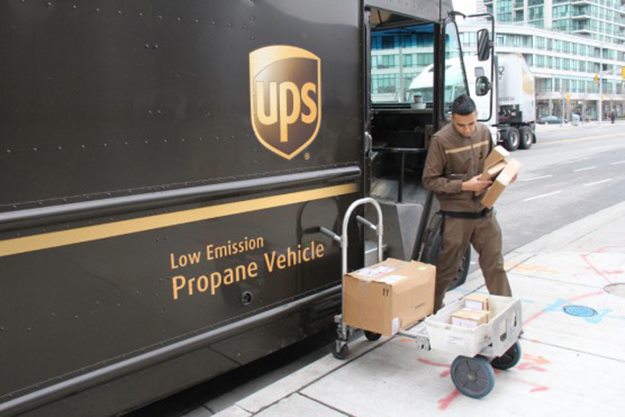Media Room
UPS releases report showing strong growth in alternative fuel adoption

With a fleet of 119,000 vehicles, 2,500 operating facilities and 10.5 million customers served every day around the world, UPS is undergoing a transformation to boost its credentials even further. Most notably, the logistics giant is going big on sustainability while, at the same time, normalising its use of alternative fuel technology.
As laid out in its newly released 2017 Corporate Sustainability Progress Report, the company’s environmental goals include as follows: cutting absolute greenhouse-gas (GHG) emissions 12% by 2025 in global ground operations; generating 25% of its electricity from renewable energy resources by 2025; growing alternative fuels to 40% of its total ground fuel by 2025; and purchasing 25% alternative fuelled/advanced technology vehicles annually by 2020.
“Because of our size and scale, we know our commitments can shape markets, advance technologies and be a catalyst for infrastructure investments,” said David Abney, UPS’ chairman and CEO, when the company announced its sustainability goals in 2017.
Currently, UPS’ clean fleet totals roughly 9,100 ground vehicles as part of a “rolling laboratory” approach of testing out different types of alternative fuelling, including Autogas, natural gas, electric, hydraulic hybrid, electric hybrid, and ethanol. Through the end of this year, UPS says it will have invested more than $1 billion in alternative fuel and advanced technology vehicles and fuelling since 2008. The company currently operates more than 1,150 Autogas delivery trucks in the United States (California, Colorado, Georgia, Louisiana, Minnesota, North Carolina, Oklahoma, Puerto Rico and Texas); and more than 1,110 in international operations in Canada and Mexico. If you want to know more, please check this link.
14 July 2018
